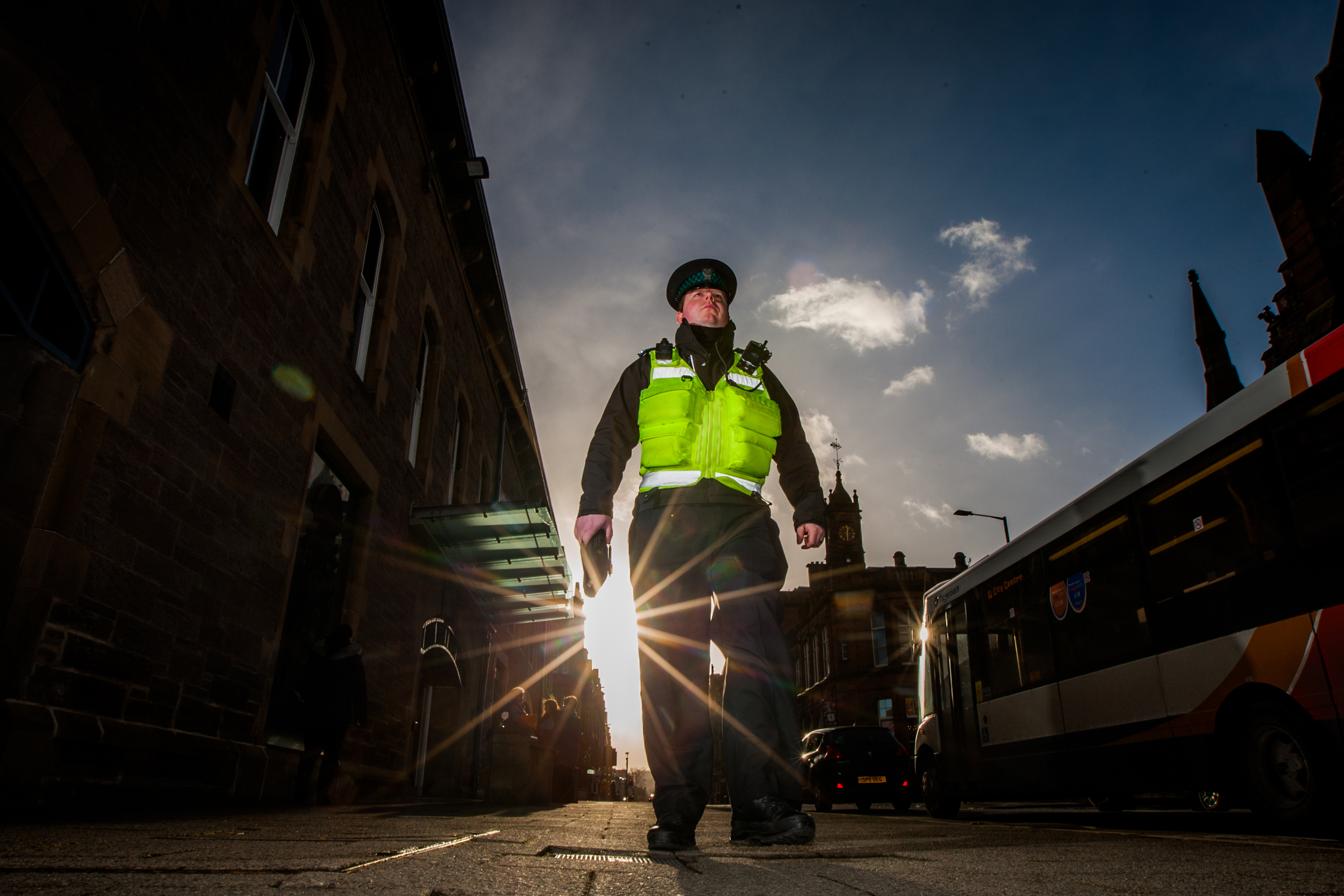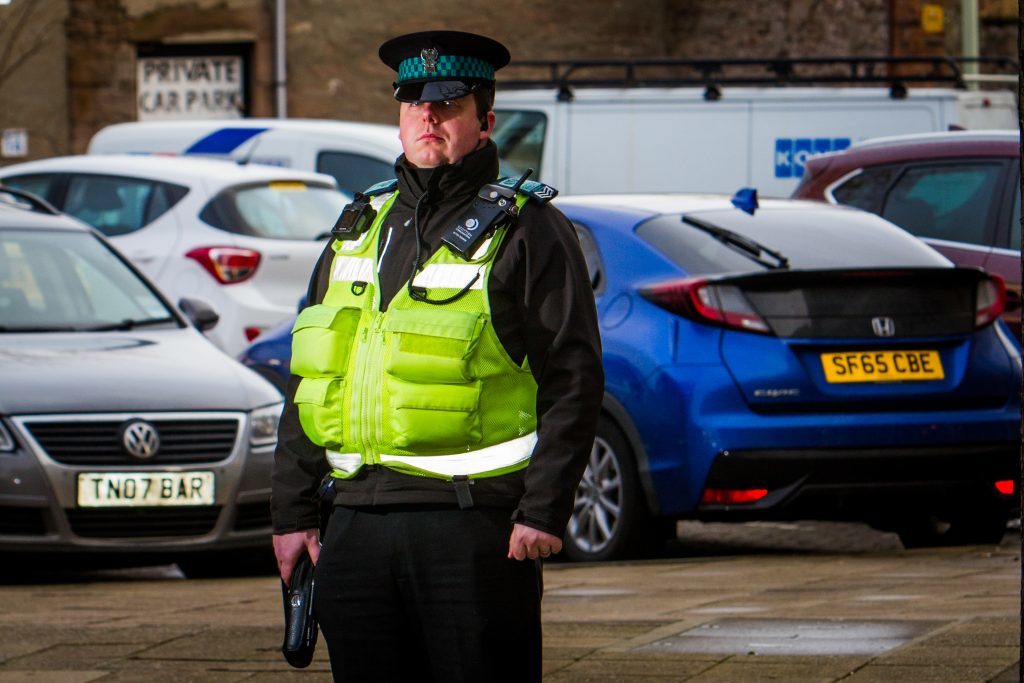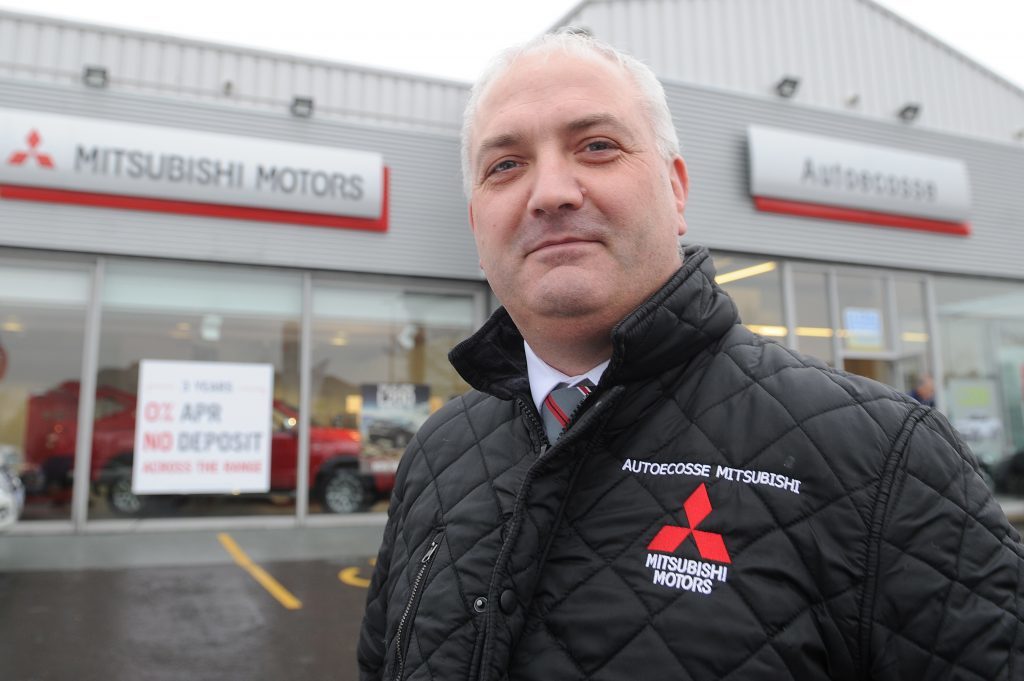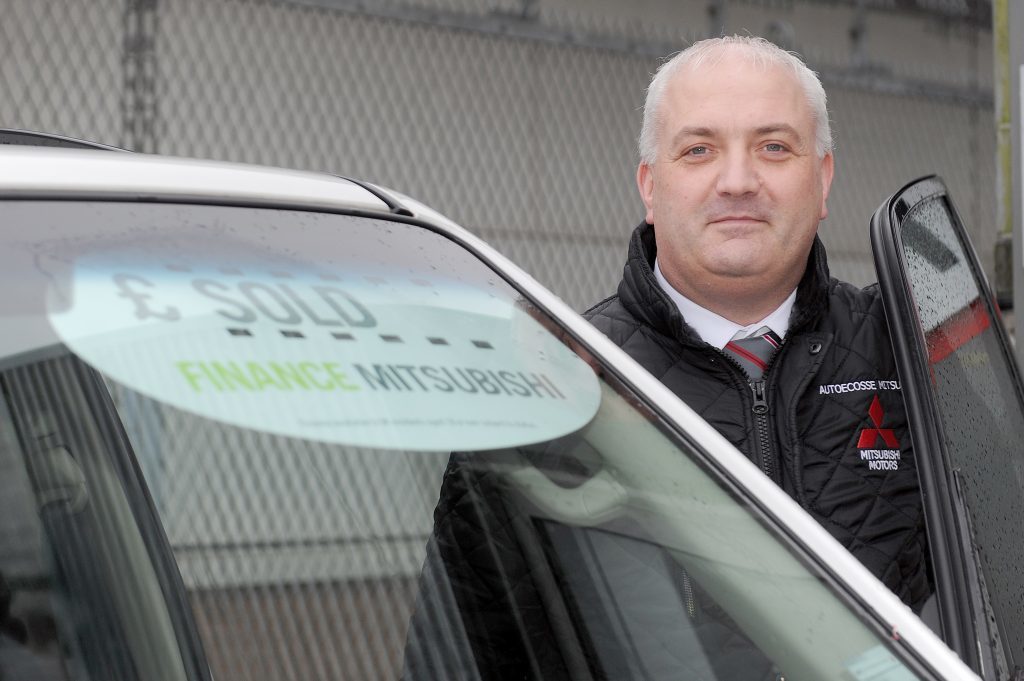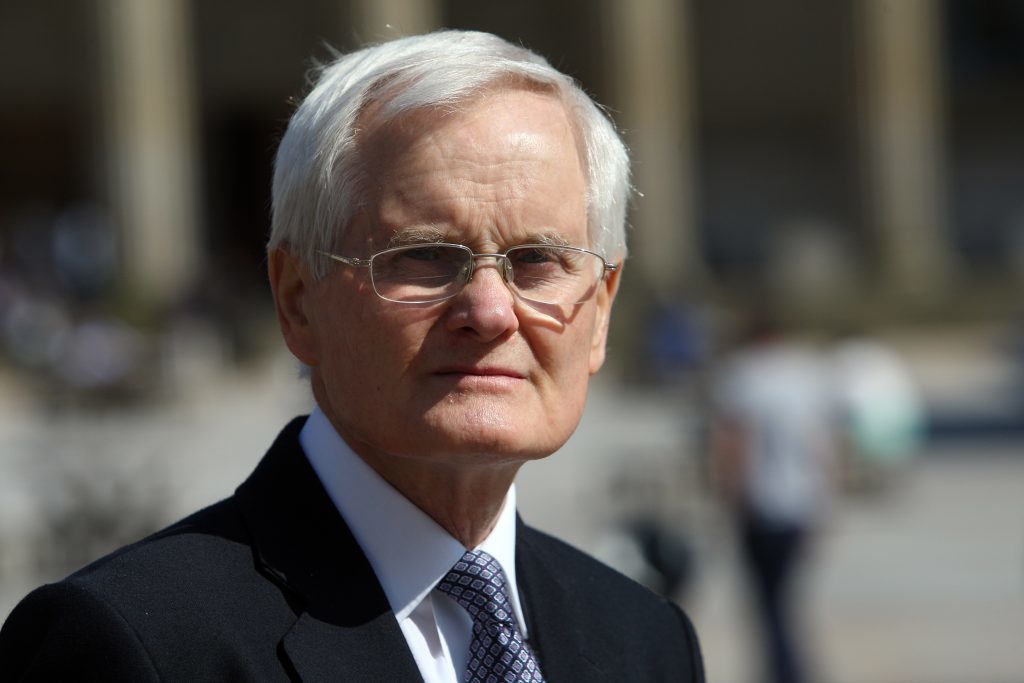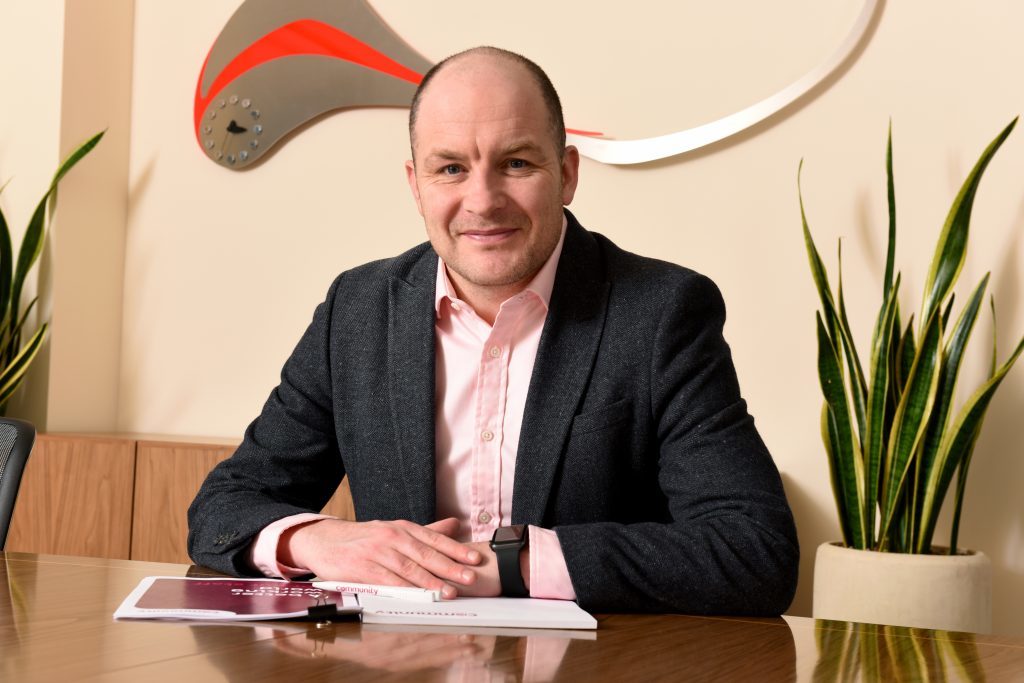They may not be liked or trusted but they are necessary. Jack McKeown meets the people who do the jobs we love to hate.
Nurses. Teachers. Pilots. Scientists. All people we trust to make the world a safer and better place.
At the other end of the spectrum are those we think do nothing other than make our lives more miserable for their own petty gain.
Numerous surveys – including a recent poll by Ipsos MORI and Mumsnet – have looked at which professions have the most and least public trust.
Consistently among the least trusted are politicians, parking wardens, used car salesmen, estate agents and trades union officials. But are these people really doing the devil’s work or are they actually misunderstood and misjudged?
Parking attendants don’t have the best reputation but Stewart Skene says that’s changing – in Perthshire at least. The senior parking attendant for Perth & Kinross Council is helping to change public perception.
“We always give people 10 minutes leeway when their ticket is up,” he explains. “Legally we don’t have to but we feel it’s the right thing to do. Delays happen. Sometimes you don’t get back on time for a whole range of reasons so we try to cut people some slack.”
Stewart (32) contrasts Perth & Kinross with Edinburgh and Glasgow, where parking attendants are employed by an external company. “They’re usually on minimum wage and get commission for issuing tickets. That’s why you get them hiding behind corners and all sorts.
“Our attendants aren’t under any pressure to issue fines. We don’t have any targets and there’s no pressure to hand out fines.”
Of course, even the nicest parking attendant in the world can’t fail to get people’s backs up some of the time and Stewart says abuse is a hazard of the job.
“It’s usually verbal,” he says. “People shouting at you, saying horrible things – I hope your family gets cancer, that kind of nasty stuff.
“Our staff get training on how to de-escalate these situations. A lot of awful stuff can get said to you but we underline to our staff it’s not directed at the individual, it’s directed at the uniform.”
While most abuse is verbal occasionally things take a dangerous turn. “One of our staff had his toes run over,” Stewart says. “He was putting a ticket on the window and the guy tried to drive away before he could get the ticket on. The wheel went over his foot but luckily he just had a bit of bruising.
“We underline our attendants shouldn’t put themselves at risk. It’s frustrating if someone drives off while you’re writing a ticket but at least the obstruction is gone from the road – and if these people continue like that eventually they’ll get caught.”
While some members of the public love to berate parking attendants, others actively call on them to help with problems.
“We get a lot of calls from members of the public saying people are parking on double yellows in their cul de sac, blocking their driveway, or about problem parking at schools. Sometimes when we’re out people thank us for sorting out a problem in their area.”
Few industries in any have had to clean up their act more comprehensively than used car garages.
“The car salesmen of even five or 10 years ago simply would not survive in today’s environment unless they’re ready to change completely,” says Kevin Gordon, sales manager at Autoecosse in Dundee, which specialises in new and used Mitsubishis.
He says there’s been a radical way in which people buy cars. “Five years ago people would visit between eight and 10 showrooms before making a purchase. Now that’s fallen to 1.2. Millennials are doing their research online and turn up knowing as much about the car they want as the salesman does.”
A combination of legislation and changes in the market have forced the profession to up its game. “When I started nearly 20 years ago nothing was computerised. Finance wasn’t regulated. The internet wasn’t around. Now people can review you on social media and trusted trader sites. They can research prices not just locally but across the whole of the UK. They can go on our website and see a 360 degree video of the car they’re looking to buy. When they put their car in to be serviced we video that as well. It’s all about openness and transparency.”
Despite all this, Kevin (40) says his profession has struggled to shrug off its negative image. “We still get a lot of people coming in with lots of preconceptions. But then I suppose I’m like that when I go shopping for a new bed or sofa…”
Estate agents don’t tend to be trusted further than they can be thrown. Audrey Black is a sales negotiator at Thorntons Property’s Anstruther office. The 34-year old has worked in the industry for more than a decade. “When I started properties were going for 10-20% above the asking price really quickly. Now it’s much harder to sell a property.”
She says working for Thorntons gives her an advantage when it comes to winning trust. “We’re a solicitors firm so we’re governed by the Law Society of Scotland. Solicitor firms are more trusted because of that backing.
“Ordinary estate agents and online-only estate agents don’t give you any of the same guarantees. A particular feature of Thorntons is we have so many branches in the east of Scotland. Our customers can pop into the branch and it’s easy for them to put a face to a name.”
Almost every survey has politicians at or near the bottom of the pile. The IPSOS/Mumsnet survey has three categories of them – local councillors, government ministers and politicians generally – in its 10 least trusted professions.
Ian Borthwick is Scotland’s longest serving councillor. The independent councillor for Dundee’s Strathmartine Ward has been in post for 53 years.
The 77-year old says times have changed. “Things have got quite different over my time,” he says. “There’s a lot less cross-party co-operation than there once was.”
Councillors may be held in low regard by the public but Ian thinks most of them are well intentioned. “The councillors I know are good people who want what’s best for the city. Where there are problems tends to be when the parties get involved. That’s when it gets stultified and progress is impeded.”
Since 2005 councillors in Scotland have been paid a salary – until then it was a voluntary role and in most cases councillors could only claim for expenses incurred. “I don’t think that’s been a big success,” Ian reckons. “We were told it would lead to a better class of councillor. I don’t think they’re any different now than they were before.
“When I started in 1956 you got a bus pass to get you to council meetings and that was it. And God help you if you used it for anything other than council business…”
Just as politicians were once held in higher esteem than they are today, so has the reputation of trades union officials fallen.
John Park is assistant general secretary for strategy, policy and external relations with Community, which was formed in 2004 as an amalgamation of several much older trade unions including the Iron and Steel Trades Confederation and the Knitwear, Footwear and Apparel Trade Union.
“The minute I left school in 1989 I went to Rosyth Docks to become an electrician and joined the union.” John (43) explains. “There were thousands of workers there and only maybe two or three weren’t in a trade union. Now only around 15% of private employees are union members and 50-60% of those in the public sector.”
Why has union membership plunged so dramatically in just a generation? “Trade unions have become a victim of their own success,” John explains. “If you go back 100 or 150 years you didn’t have weekends. It was the unions that stopped people having to work seven days and secured weekends off, along with more holidays and safer work conditions.
“More recently you’ve got the minimum wage and the working time directive. A lot of the bigger battles have been won.
John admits unions have an image problem. “When trade unions are in the news it’s only ever for negative reasons. If they’re calling for a strike or getting involved with Labour Party politics. That’s when the salaries of top union officials are brought up.
“We also have a problem with blaming other people for how we are characterised. It’s the Tory Party. It’s the right wing press. We need to have a much stronger voice about all the good things we do. The things we’ve achieved in partnership with employers and politicians have been tremendous. We see employers not as part of the problem but as part of the solution.
“Trade unions have been at the forefront of helping people develop new skills. They’ve worked with employers to lead a silent revolution in the UK over the past 10 years.”
John is unusual in having had two of the three mistrusted roles on our list – he was Labour MSP for Mid Scotland and Fife from 2007-2012. Which one does he think the public warms to more?
“I’d definitely say trade union officials are better liked,” he says. “However I would strongly caveat that by saying politicians don’t deserve their reputation. The vast majority of them are hardworking individuals who’ve given their lives to public service.”
